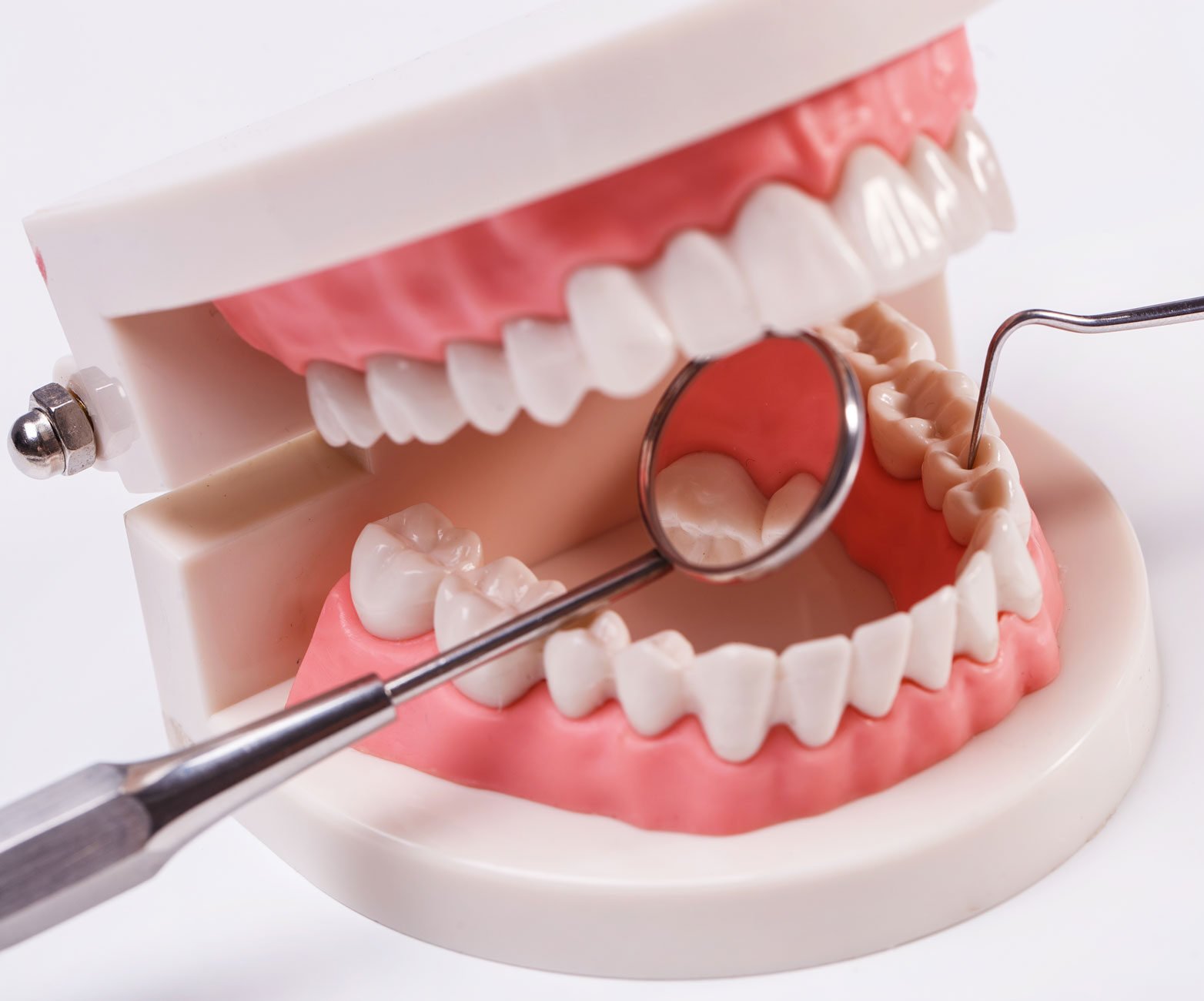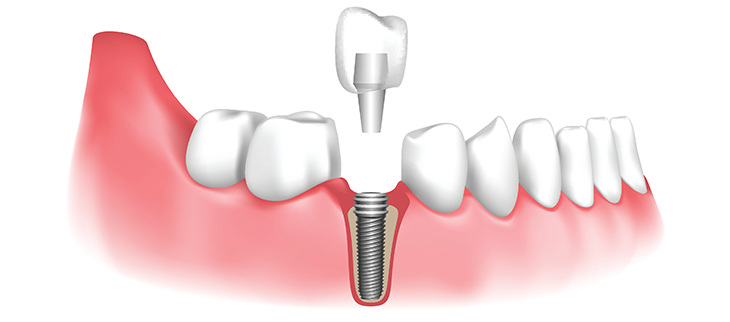Can you get cavities with veneers? In this article, we will explore the relationship between veneers and dental cavities. While veneers are a popular cosmetic dental solution for a flawless smile, it’s important to understand if they can protect you from cavities or if additional oral hygiene measures are necessary. Join us as we delve into the world of veneers and their impact on dental health. Stay tuned for valuable insights and expert advice.
Preventing Cavities with Dental Implants: What You Need to Know
Preventing Cavities with Dental Implants: What You Need to Know
When it comes to maintaining good oral health, preventing cavities is a top priority. While dental implants are known for their durability and longevity, it’s essential to take proper care of them to prevent any potential issues, including cavities.
Regular Oral Hygiene Routine: Just like with natural teeth, a consistent oral hygiene routine is crucial in preventing cavities with dental implants. Brushing twice a day and flossing daily will help remove plaque and food particles from around the implant and gumline.
Use a Soft-Bristled Toothbrush: Using a soft-bristled toothbrush is recommended to prevent damage to the implant or gum tissue. Gentle brushing motions should be used to clean all surfaces of the implant crown, ensuring that no areas are missed.
Avoid Abrasive Toothpaste: While it’s essential to use toothpaste to clean your dental implant, using an abrasive toothpaste can cause damage to the implant surface. It’s best to opt for a non-abrasive toothpaste that is specifically designed for implant care.
Regular Dental Check-ups: Regular visits to your dentist are vital in preventing cavities with dental implants. Your dentist will examine your implant, gum tissue, and overall oral health to detect any early signs of cavities or other issues.
Maintain a Healthy Diet: A balanced diet that is low in sugar and acidic foods plays a significant role in cavity prevention. Limiting sugary snacks and drinks will help reduce the risk of cavity formation around your dental implant.
Quit Smoking: Smoking not only affects overall oral health but also increases the risk of developing cavities. Quitting smoking is not only beneficial for your general health but also for maintaining a healthy mouth and preventing cavities with dental implants.
In summary, preventing cavities with dental implants requires a consistent oral hygiene routine, using a soft-bristled toothbrush and non-abrasive toothpaste, regular dental check-ups, maintaining a healthy diet, and quitting smoking. By following these guidelines, you can ensure the longevity and health of your dental implants while minimizing the risk of cavities.
What happens if you develop a cavity underneath your veneers?
If a cavity develops underneath your veneers, it can be concerning. Veneers are thin shells made of porcelain or composite resin that are bonded to the front of your teeth to improve their appearance. However, they do not protect against decay, and if oral hygiene is neglected, bacteria can still cause cavities.
If you suspect a cavity beneath your veneers, it is essential to visit your dentist. They will evaluate the situation and develop a treatment plan accordingly. In some cases, they may be able to remove the veneer and treat the cavity. However, if the cavity is extensive or affects the underlying tooth, more complex procedures such as root canal therapy or tooth extraction may be necessary.
Prevention is key to avoiding cavities under veneers. Maintain good oral hygiene by brushing twice a day, flossing daily, and using an antibacterial mouthwash. Regular dental check-ups are also crucial to detect any issues early on. Your dentist may recommend periodic X-rays to monitor the condition of the teeth under the veneers.
In conclusion, although veneers can enhance the appearance of your teeth, they cannot protect against cavities. It is vital to prioritize oral hygiene and visit your dentist regularly to prevent and address any dental problems, including cavities that may develop underneath your veneers.
Do you have any tips on how to clean the teeth beneath veneers?
When it comes to cleaning the teeth beneath veneers, proper oral hygiene is crucial to maintaining their longevity and preventing dental implant complications. Here are some tips:
1. **Brushing:** Use a soft-bristled toothbrush and a non-abrasive toothpaste to gently brush your teeth twice a day. Angle the bristles at a 45-degree angle towards the gumline and make small circular motions to clean both the veneer surface and the surrounding natural teeth. Avoid using excessive force or a back-and-forth scrubbing motion, as it can damage the veneers.
2. **Flossing:** Floss daily to remove plaque and debris from between the teeth. Slide the floss gently beneath the veneer, making sure to clean the sides of the neighboring natural teeth as well. Be careful not to snap the floss up or down forcefully, as it may dislodge or damage the veneer.
3. **Interdental brushes:** Consider using interdental brushes, also known as proxy brushes, to clean hard-to-reach areas around the dental implant and veneers. These small brushes can effectively clean the spaces between teeth and implants where floss may be difficult to maneuver.
4. **Antibacterial mouthwash:** Rinse with an antibacterial mouthwash to help minimize the buildup of bacteria and plaque around the dental implants and veneers. Choose a mouthwash that is alcohol-free and specifically formulated for dental implants, as some products may contain ingredients that can harm the materials used in veneers.
5. **Regular dental visits:** Maintain regular dental check-ups and professional cleanings to ensure the health of your dental implants and veneers. Your dentist will be able to assess the condition of the veneers, identify any signs of problems, and provide necessary treatments or adjustments.
Remember to follow any specific instructions provided by your dentist, as they may have additional recommendations tailored to your specific case. With proper care and regular maintenance, you can enjoy the benefits of dental implants and veneers for many years to come.
Do veneers have the potential to yellow?
Veneers are thin porcelain or composite resin shells that are bonded to the front of teeth to improve their appearance. Unlike natural teeth, veneers are resistant to staining and discoloration. However, it is important to note that veneers can still potentially yellow over time due to certain factors.
The material used for veneers is generally stain-resistant and designed to maintain its color for a long time. However, habits such as smoking, consuming dark-colored foods and drinks like coffee, tea, and red wine, as well as poor oral hygiene, can contribute to staining and discoloration of veneers. Additionally, over time, the materials used in veneers can undergo subtle color changes.
To keep veneers looking their best and prevent them from yellowing, it is crucial to maintain a good oral hygiene routine. This includes brushing and flossing regularly and visiting the dentist for professional cleanings. It is also advisable to avoid or minimize the consumption of staining foods and drinks, and if necessary, use a straw to reduce contact with the teeth.
If a veneer does become discolored or yellowed, it may be possible to have it professionally polished or replaced by a dentist to restore its original appearance.
Overall, while veneers are generally resistant to staining and discoloration, proper care and maintenance are key to keeping them looking bright and natural for an extended period of time.
What is the lifespan of veneers?
The lifespan of veneers can vary depending on several factors. Generally, veneers can last anywhere from 10 to 20 years. However, with proper care and maintenance, they can last even longer.
Good oral hygiene practices, such as regular brushing and flossing, as well as routine visits to the dentist for check-ups and cleanings, are essential for maintaining the longevity of veneers. It is also important to avoid habits that can damage the veneers, such as biting or chewing on hard objects like ice or pens, as well as using teeth as tools.
While veneers are made of durable materials, they can still be susceptible to wear and tear over time. In some cases, they may become chipped or cracked, which may require replacement or repair. Additionally, changes in gum line or natural tooth structure can also affect the appearance and fit of the veneers, potentially necessitating adjustments or replacements.
Ultimately, the lifespan of veneers is influenced by a combination of factors, including the individual’s oral hygiene habits, lifestyle choices, and the quality of the veneers themselves. Regular visits to the dentist can help assess the condition of the veneers and address any issues early on, ensuring their longevity and continued aesthetic appeal.
Frequent Questions
Can cavities develop underneath dental veneers?
Yes, cavities can develop underneath dental veneers. Dental veneers are thin shells made of porcelain or composite resin that are designed to cover the front surface of teeth to improve their appearance. While veneers can effectively enhance the aesthetics of a smile, it is still important to maintain good oral hygiene and take care of the underlying teeth.
Although the veneer itself is impervious to decay, the tooth structure beneath it can still develop cavities if proper oral hygiene practices are not followed. Plaque and bacteria can accumulate around the edges of the veneer, particularly where it meets the natural tooth. If these areas are not adequately cleaned, the bacteria can produce acids that can erode the enamel and lead to cavities.
To prevent cavities from developing beneath dental veneers, it is crucial to maintain a thorough oral hygiene routine. This includes brushing at least twice a day with a fluoride toothpaste, flossing daily, and visiting the dentist regularly for professional cleanings and check-ups. Your dentist may also recommend using an antimicrobial mouthwash to help reduce plaque buildup.
In addition to practicing good oral hygiene, it is important to avoid habits that can increase the risk of cavities, such as consuming sugary foods and drinks frequently, and avoiding excessive snacking between meals. Regular dental examinations can help detect any early signs of decay underneath the veneers, allowing for prompt treatment and prevention of further damage.
Overall, while dental veneers can provide a beautiful smile transformation, it is essential to maintain good oral hygiene and stay proactive in cavity prevention to ensure the long-term success of the veneers and the overall oral health.
Do veneers protect against tooth decay and cavities?
Veneers do not provide direct protection against tooth decay and cavities. Veneers are thin shells made of porcelain or composite resin that are bonded to the front surface of teeth to improve their appearance. While they can provide a cosmetic solution for teeth that are stained, chipped, or misaligned, they do not prevent or protect against tooth decay.
Good oral hygiene practices, such as brushing at least twice a day with fluoride toothpaste, flossing daily, and regular dental check-ups, are still necessary to prevent tooth decay and cavities. It is important to maintain proper oral care even if you have veneers to ensure the health of your natural teeth beneath them.
In summary, while veneers can enhance the appearance of teeth, they do not offer direct protection against tooth decay and cavities. Maintaining a good oral hygiene routine and visiting your dentist regularly are essential for oral health, regardless of whether you have veneers or dental implants.
How can I prevent cavities while having dental veneers?
Please note that while these questions relate to the topic of cavities with veneers, it is important to consult with a dental professional for accurate information and guidance.
Dental veneers are thin shells made of porcelain or composite resin that are bonded to the front surface of your teeth to improve their appearance. While veneers can provide a beautiful smile, it is important to take steps to prevent cavities, especially around the edges of the veneers where bacteria can accumulate. Here are some tips to help you prevent cavities while having dental veneers:
1. Maintain good oral hygiene: Brush your teeth at least twice a day with a fluoride toothpaste and clean between your teeth using dental floss or interdental brushes. This will help remove plaque and food particles that can contribute to cavity formation.
2. Avoid excessive sugar consumption: Limit your intake of sugary foods and beverages, as bacteria in your mouth feed on these sugars and produce acids that can erode your tooth enamel and cause cavities.
3. Use an antibacterial mouthwash: Rinse with an antibacterial mouthwash containing fluoride to help kill bacteria and strengthen your tooth enamel.
4. Visit your dentist regularly: Regular dental check-ups and professional cleanings are crucial for maintaining good oral health. Your dentist will be able to detect any early signs of cavities and provide appropriate treatment.
5. Protect your veneers: Avoid biting into hard objects, such as ice or pens, as this can damage your veneers and create spaces where bacteria can thrive. If you participate in sports or grind your teeth at night, consider wearing a mouthguard to protect your veneers.
6. Consider using a fluoride varnish or gel: Your dentist may apply a fluoride varnish or gel on the edges of your veneers to further protect them from cavities.
Remember, good oral hygiene practices, regular dental visits, and a healthy lifestyle are key to preventing cavities, whether you have dental veneers or not.
In conclusion, it is important to remember that while veneers provide an aesthetically pleasing smile, they do not provide immunity against cavities. Although the porcelain material used in veneers is resistant to stains and decay, the underlying tooth structure can still be susceptible to decay if proper oral hygiene practices are not followed. Therefore, individuals with veneers must continue to practice good oral hygiene, including regular brushing, flossing, and dental check-ups. Prevention is key when it comes to maintaining a healthy smile, whether you have veneers or natural teeth. So, remember to keep up with your oral care routine and consult with your dentist for personalized advice on maintaining the longevity of your veneers and overall dental health.



